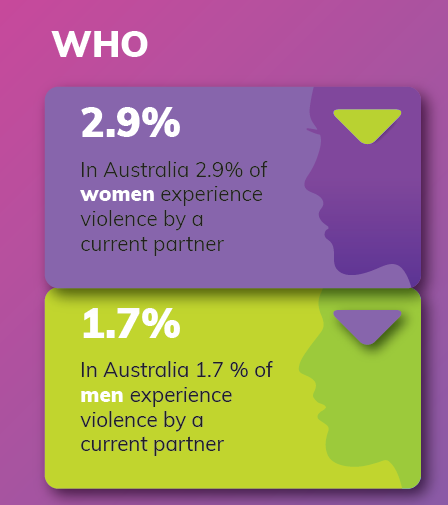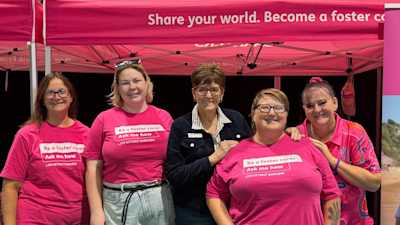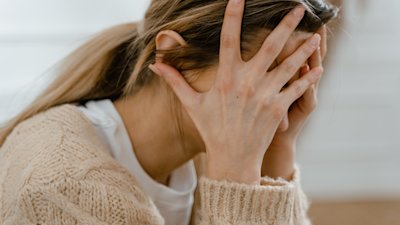Each May, Queensland marks Domestic and Family Violence Prevention Month to raise community awareness of domestic and family violence..

Domestic and Family Violence Prevention Month (DFVP Month) is an annual event held each May which aims to raise community awareness of the social and personal impacts of domestic and family violence and the support available to those affected.
The key aims of the month are to:
raise community awareness of domestic and family violence and its impacts;
promote a clear message of no tolerance of domestic and family violence in Queensland communities;
ensure those who are experiencing domestic and family violence know how to access help and support;
encourage people who use abuse and/or violence to take responsibility for their abusive behaviour and seek support to change.
The awareness raising events, projects and activities held during DFVP Month support the Queensland Government’s response to the ‘Not Now, Not Ever’ report. Although most events and activities have been postponed this May due to the COVID-19 pandemic, DFVP Month is still an opportunity to say Not now, not ever. Together to help put an end to DFV in our communities.
On a more immediate note, preliminary domestic violence figures during COVID-19 are a huge concern. Social isolation and increased stress from losing income and financial pressures are identified as triggers in domestic violence cases.
It’s been reported that family violence notifications to police nearly tripled in some areas of China’s Hubei province during the lockdown in February. Likewise, some family violence organisations across Australia have already reported a rise in demand for services.
The federal government is taking action though and has recently announced A$1.1 billion for mental health services, domestic violence support and Medicare assistance for people at home, and emergency food relief.
We all have a role to play – individually and collectively – and this adds to the ever increasing voice of all Queenslanders calling for violence in the home to end.
Lifeline Text is available 6.00pm - Midnight (AEST), 7 days a week 0477 13 11 14.
The Special Taskforce on Domestic and Family Violence in Queensland, in its ‘Not Now, Not Ever’ report recommended that individuals, community groups and the private sector work together to help prevent domestic and family violence and support those affected.
Find out how you can get involved and visit the DFVP Month events calendar to find a virtual event happening during May or to register your own virtual event.

Image: (Unsplash: Eric Ward/ ABC Life: Luke Tribe)
COVID-19 and vulnerable children
Prior to the pandemic, in 2018-19, about 170,000 children aged up to 17 years received child protection services. These services include investigations, which may or may not lead to substantiated cases of child abuse or neglect, care and protection orders, or out-of-home care placements.
Reduced service provision can amplify the pre-existing and COVID-19-related challenges that impact children’s safety. Existing family stress can be magnified through widespread job and income loss, food security issues in regional areas and medication shortages.
One concern is that as families become more isolated due to the pandemic, children already at risk face heightened danger from violence, abuse and neglect in their homes.
As of June 2019, there were 44,900 children in out-of-home care. Most of these children were in home-based care, with just over half cared for by relatives, such as grandparents, who are at higher risk of more severe effects of COVID-19.
Around 30% of children in out-of-home care also live with a disability or mental health issue. These children require high levels of support, which places extra pressure on carers who may be homeschooling while coping with reduced childcare and respite support.
Hard Facts
A report published by the Australian Institute of Health and Welfare in 2019 revealed that people vulnerable to family, domestic and sexual abuse were:
Children: 1 in 6 women and 1 in 9 men experience physical or sexual abuse before the age of 15.
Young women: 53% of police-recorded female sexual assault victims in 2017 were aged 15–34.
Elder abuse: More than 10,900 calls were made to elder abuse hotlines across Australia in 2017–18. The calls were more commonly related to financial or emotional abuse.
People with disability: People with disability were 1.8 times as likely to experience partner violence as those without disabilities in the previous 12 months.
Aboriginal and Torres Strait Islander peoples: were 32 times more likely to be hospitalised for family violence as non-Aboriginal and Torres Strait Islander peoples.
LQBTIQ+ people: People with diverse sexual orientations and gender diversities are more likely to experience workplace sexual harassment—52%, compared to 30% of other Australians .
Abs - Women's Experiences Of Physical Assault By A Male In The Last Ten Years
An estimated 1.1 million women experienced physical assault by a male perpetrator in the last ten years.
Of all women who had experienced physical assault by a male, 79% experienced their most recent incident in a home location.
Around half (49%) of women who experienced physical assault by a male reported that alcohol or another substance contributed to the most recent incident.
Follow the conversation online using the hashtags #DFVPreventionMonth #endDV and #notnownotevertogether



